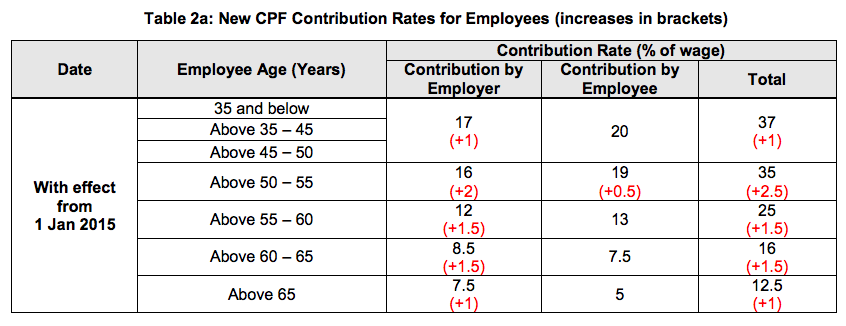- Joined
- Nov 25, 2011
- Messages
- 28,803
- Points
- 113
https://sg.finance.yahoo.com/news/singapore-workers-unhappy-bunch-060351733.html
Singapore is synonymous with a first-rate quality of life with its low crime rates, superior infrastructure and impeccable cleanliness - but employees in Southeast Asia's wealthy island nation are among the region's least satisfied.
Almost half of employees in Singapore do not think they have the perfect job, with three-quarters viewing their job only as a way to make a living and nothing more, according to a survey by global recruitment firm Randstad Workmonitor published on Tuesday.
Singapore ranks second in Asia Pacific, behind Japan, with the number of employees dissatisfied in their current jobs.
Given Singapore's rising cost of living it's not surprising that many of city-state's workforce view their jobs solely as a means to put food on the table, said Michael Smith, country director of Randstad Singapore.
Read More Singapore now world's most expensive city
Singapore is the world's most expensive city to live in, according to The Economist Intelligence Unit's (EIU) Worldwide Cost of Living survey released earlier this year.
Soaring transportation, housing and utilities costs have fueled a sharp rise in living costs over the past decade.
Transport costs in the city-state, for example, are almost three times higher than in New York. Owning a vehicle comes with very high certificate of entitlement (COE) fees, which makes it significantly more expensive to run a car in the city. COE is a license issued by the government to own a car.
Read More Just how expensive is Singapore?
The survey of almost 5,700 employees in Singapore also found that the majority of respondents would not hesitate to change jobs if they could make more money (80 percent), improve career opportunities (78 percent) or find a job that was a better match with their educational backgrounds (71 percent).
"Understanding what motivates employees in their job search and decision to remain in a role will not only allow employers to better engage with their staff, but also increase their employees' job satisfaction and as a result, the productivity of their workforce," Smith said.
Read More This is how a happy workforce can transform a company
"There are many ways employers can engage their staff and keep them motivated. For example, giving employees the opportunity to have more control over their career will allow them to set their own goals and feel a sense of achievement when these goals are met. Creating an atmosphere of growth by providing training and development opportunities can also help contribute to staff engagement and increase satisfaction at the workplace," he added.
Singapore is synonymous with a first-rate quality of life with its low crime rates, superior infrastructure and impeccable cleanliness - but employees in Southeast Asia's wealthy island nation are among the region's least satisfied.
Almost half of employees in Singapore do not think they have the perfect job, with three-quarters viewing their job only as a way to make a living and nothing more, according to a survey by global recruitment firm Randstad Workmonitor published on Tuesday.
Singapore ranks second in Asia Pacific, behind Japan, with the number of employees dissatisfied in their current jobs.
Given Singapore's rising cost of living it's not surprising that many of city-state's workforce view their jobs solely as a means to put food on the table, said Michael Smith, country director of Randstad Singapore.
Read More Singapore now world's most expensive city
Singapore is the world's most expensive city to live in, according to The Economist Intelligence Unit's (EIU) Worldwide Cost of Living survey released earlier this year.
Soaring transportation, housing and utilities costs have fueled a sharp rise in living costs over the past decade.
Transport costs in the city-state, for example, are almost three times higher than in New York. Owning a vehicle comes with very high certificate of entitlement (COE) fees, which makes it significantly more expensive to run a car in the city. COE is a license issued by the government to own a car.
Read More Just how expensive is Singapore?
The survey of almost 5,700 employees in Singapore also found that the majority of respondents would not hesitate to change jobs if they could make more money (80 percent), improve career opportunities (78 percent) or find a job that was a better match with their educational backgrounds (71 percent).
"Understanding what motivates employees in their job search and decision to remain in a role will not only allow employers to better engage with their staff, but also increase their employees' job satisfaction and as a result, the productivity of their workforce," Smith said.
Read More This is how a happy workforce can transform a company
"There are many ways employers can engage their staff and keep them motivated. For example, giving employees the opportunity to have more control over their career will allow them to set their own goals and feel a sense of achievement when these goals are met. Creating an atmosphere of growth by providing training and development opportunities can also help contribute to staff engagement and increase satisfaction at the workplace," he added.



